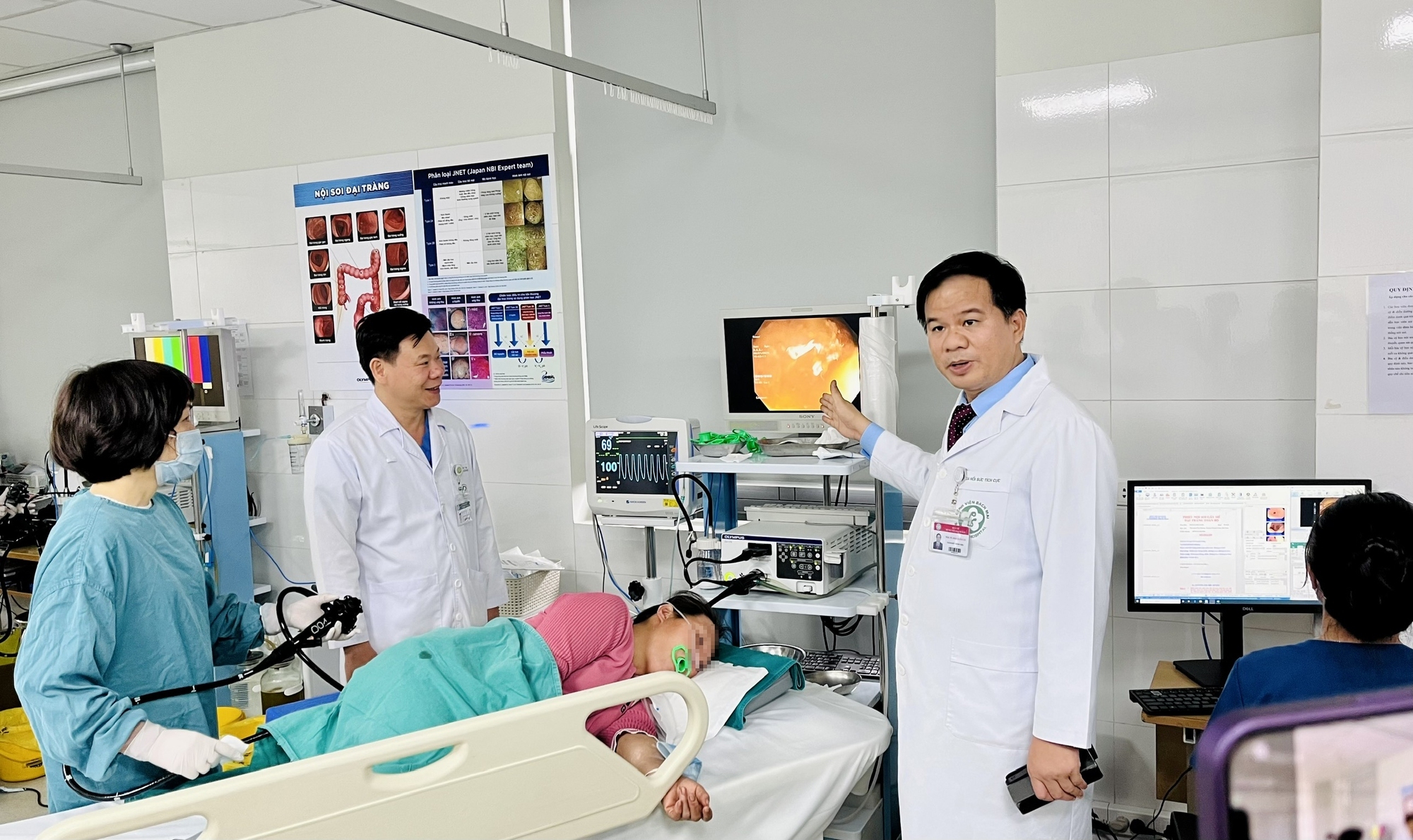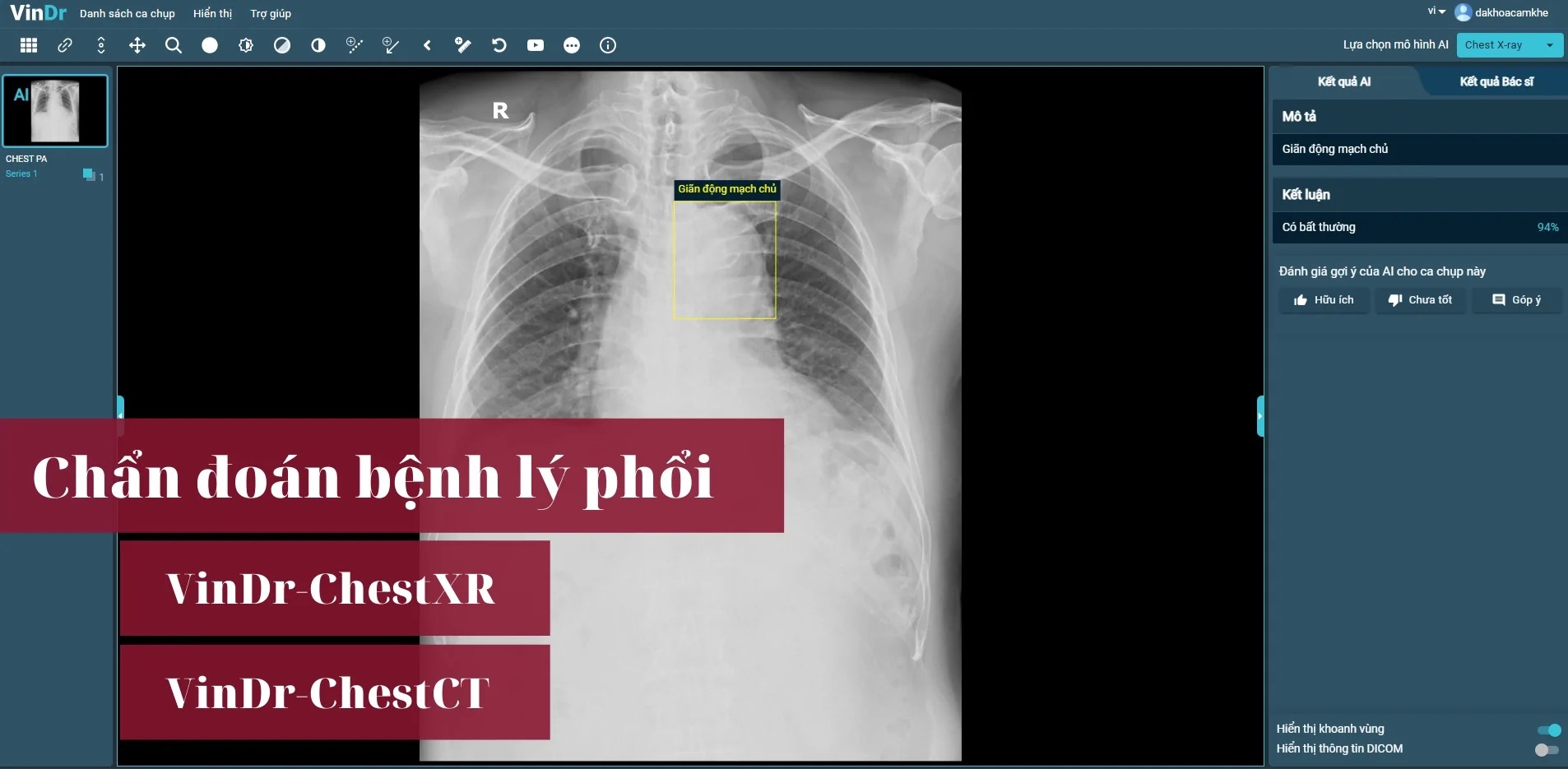What Is AI In Medical Imaging?
AI in medical imaging or medical image analysis refers to the application of artificial intelligence algorithms, particularly machine learning and deep learning, to process, analyze, and assist in interpreting medical images such as X-rays, CT scans, MRIs, ultrasounds, pathology slides, and PET scans.
According to research done by Litjens et al. (2017), unlike traditional manual image interpretation where doctors examine each image individually, AI uses mathematical models to automatically detect features related to abnormalities or lesions. These models segment and classify affected areas, assess severity or malignancy, and highlight suspicious regions for doctors to review.
Critical Healthcare Needs This Technology Helps To Address
1. Alleviating Radiologist Workload
One of the most pressing issues in healthcare systems is the overwhelming workload faced by doctors, especially radiologists at provincial and central hospitals, who often have to interpret hundreds of scans daily. Each image requires careful review for small lesions, slice comparisons, and structural analysis, all of which are time-consuming and mentally taxing.
In practice, doctors frequently don’t have enough time to analyze every detail, increasing the risk of fatigue, distraction, or fluctuating diagnostic sensitivity throughout the day. In these scenarios, AI plays a critical role by conducting preliminary screenings to flag abnormal areas and direct the doctor's attention to key regions, thereby improving focus, productivity, and accuracy.
2. Detecting Subtle Abnormalities And Reducing Errors
AI’s strength lies in its ability to "see" minute or hard-to-detect patterns and details that are easy to miss during high-volume clinical workflows.
For instance, in chest X-rays, small nodules in the lungs, subtle bone lesions, or early-stage pneumonia can be overlooked due to overlapping anatomical structures. A well-trained AI model can identify these ambiguous zones and highlight them for further physician review.
This capability is especially valuable in early-stage diagnoses of conditions like lung cancer, minor brain injuries, or early inflammation, where higher sensitivity and fewer false negatives can make a significant difference in outcomes.
3. Accelerating Decision-Making In Emergency Cases
Timely and accurate imaging diagnostics are crucial in emergency medicine. Waiting too long for manual image interpretation may cost patients their critical "golden window" for intervention.
AI can process images within seconds to provide initial findings, enabling doctors to make faster decisions. This is vital in time-sensitive conditions like stroke, where rapid identification of ischemic or hemorrhagic zones guides immediate medical or surgical action.

Vietnam’s Path From Adoption To Innovation In Medical Imaging AI
In Vietnam, AI in medical imaging is no longer a distant concept. In recent years, major hospitals and medical centers have begun integrating international AI solutions into clinical practice.
One notable example is Bach Mai Hospital, which has collaborated with international partners on AI-based imaging diagnostics. The hospital adopted Compressed SENSE technology in MRI scanning, reducing scan time by up to 50% while enhancing 2D and 3D image quality across brain, spine, musculoskeletal, abdominal, and cardiovascular imaging. AI-integrated software has also been used in cardiac MRI analysis, supporting the diagnosis of complex conditions like myocardial infarction, cardiomyopathies, congenital heart disease, and valvular disorders.

Additionally, Vietnam hospitals have implemented 3D mammography (MAMMOMAT Inspiration) combined with the Transpara® AI system. International research shows that 3D tomosynthesis with a 50-degree wide-angle scan increases the detection rate of invasive breast cancer by over 43% compared to traditional methods. The current protocol in Vietnam employs a triple-reading process: first by a radiologist, followed by AI analysis, and finally by an independent expert, ensuring high diagnostic accuracy and minimizing missed diagnoses.
What’s even more significant is that Vietnam is not stopping at using imported technologies. The country is actively developing its own AI platforms tailored to its healthcare needs.
A standout initiative is the VinDr platform by the Medical Imaging Analysis Group under VinBigData (founded by Vingroup). VinDr supports the analysis of X-rays and CT scans using AI, with full control over the development pipeline from data collection and annotation by Vietnamese doctors to model training and validation. The platform has released large datasets such as VinDr-CXR (chest X-rays) and VinDr-SpineXR (spine X-rays) for global research use. Its models have been clinically tested at Phu Tho General Hospital, achieving accuracy levels comparable to international AI systems.
This success is empowering Vietnam’s healthcare-tech community to transition from AI users to AI creators, laying the groundwork for AI solutions tailored to the nation’s demographic, clinical, and data characteristics. It also signals Vietnam’s growing technological capacity to take leadership roles in medical innovation.

The Emerging Role Of AI As A Strategic Clinical Assistant
AI in medical imaging is proving to be a vital “second partner” to physicians. From easing workloads and identifying subtle abnormalities to supporting fast, informed decision-making during emergencies, AI is becoming indispensable to improving healthcare quality.
Vietnam is progressing steadily along this transformation, beginning with the adoption of global solutions and now building its own indigenous platforms like VinDr. These early milestones signal something important: Vietnam is not merely a participant in the future of medicine; it’s shaping it.
Finally, while AI will not replace doctors, the synergy between artificial and human intelligence is key to building a more efficient, precise, and sustainable healthcare system. And with Vietnam’s rising technological momentum, it’s clear that the country’s medical sector has both the need and the capacity to lead this innovation from within.
Hosted by Vietnam Innovators Digest, the Healthcare Summit 2025 themed by “Making Vietnam an Innovation Hub through Healthcare” will bring together healthcare leaders, investors, policymakers and innovators. This year's summit will be a dynamic convergence focused on healthcare innovation, investment and accessibility through digital health solutions. We will explore how investment and innovation can accelerate the healthcare transformation in Vietnam and beyond.Date and Time: 9:00 AM - 4:00 PM, 24 October, 2025Location: Ho Chi Minh city (Venue to be updated soon)Event details: find out more HERE
Special thanks to our sponsors & partners for accompanying us in this event:
Pharmacity (Major Partner); DKT Mekong (Engagement Partner); Vietcetera (Media Partner); UK Embassy, Britcham Vietnam, Hello Bacsi (Communications Partner).

